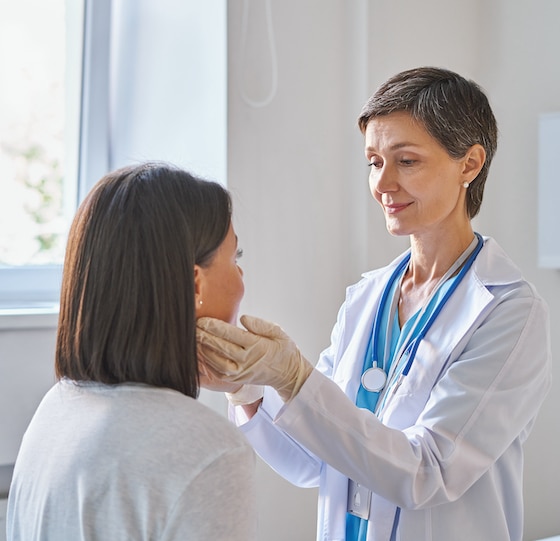Copd
Chronic Obstructive Pulmonary Disease (COPD) Clinical Research Studies
COPD, or Chronic Obstructive Pulmonary Disease, is a chronic inflammatory lung disorder. It is not a single disorder but a collection of lung diseases that obstruct the flow of air to the lungs and create breathing problems.
Diseases associated with COPD can include but are not limited to chronic bronchitis, emphysema, and refractory asthma, a severe form of asthma. Emphysema and bronchitis occur most often together, but the severity of either condition can vary from patient to patient. People living with COPD are at a higher risk of developing severe conditions, including heart disease and lung cancer.
Treatment Options for COPD
Medications used to treat COPD include but are not limited to:
- Antibiotics
- Oral Steroids
- Inhaled Steroids
- Bronchodilators
- Lung therapies including oxygen therapy administered when sleeping or during physical activity
- Pulmonary rehabilitation program that can include education, exercise, and nutritional counseling
- Bilevel positive airway pressure (BiPAP)
Treatment options for COPD continue to evolve, and each of our COPD studies offer unique treatment opportunities for patients with mild to extremely severe symptoms.
Our COPD studies offer unique treatment opportunities for patients to alleviate some of the discomforts that accompany individuals suffering from COPD or emphysema.
Learn About COPD from AllerVie Health
Learn MoreSteps to Participation
If you are interested in participating in an AllerVie clinical research study, you can expect the following:
Why AllerVie Clinical Research?
We are passionate about clinical research and paving the way for new and increasingly effective treatment options to help people live in freedom. Our patient-centered approach is founded on the partnership between patient and provider. With us, you get your own personalized team of experts in your disease with direct access to the study physician investigator.
Meet Our Team of Experts
Visit allervie.comFrequently Asked Questions
Clinical research is a branch of healthcare science that determines the safety and effectiveness of medications, devices, diagnostic products and treatment regimens intended for human use. These may be used for prevention, treatment, diagnosis or for relieving symptoms of a disease. Carefully conducted clinical research studies are the safest and fastest way to find treatments that work in people and new ways to improve health. Research studies are conducted according to a plan called a protocol. A protocol describes what types of patients may enter the study including schedules of tests and procedures, drugs, dosages, length of study, and outcomes that will be measured.
Clinical research is conducted for a variety of reasons, including to see if a new drug or device is safe and effective for people to use, to compare existing treatments to determine which is better, or to study different ways to use standard (approved) treatments, so they will be more effective, easier to use, and/or decrease side effects. Clinical research helps us learn how to best extend treatments to a different population, such as children, by learning its efficacy on the new group.
Patient safety is our top concern when conducting clinical research. To protect the rights and welfare of clinical research participants, U.S. Federal Agencies including the Food and Drug Administration (FDA) & the National Institutes of Health (NIH) oversee much of the medical research and the U.S. Institutional Review Boards (IRBs) oversee the centers where clinical research studies are conducted. IRBs review and approve study protocols to ensure that a clinical trial is ethical and that volunteers’ rights are protected.
A participant in a clinical trial has access to the IRB that is overseeing the research and access to a volunteer advocate, the physician, and the staff conducting the trial.
There are many benefits to participating in clinical research, including access to potentially new research treatments, expert medical care for the condition being studied (as our investigators are generally specialists in the disease area being studied), and the ability to help others by contributing to medical research and treatment advances. Additionally, financial reimbursement for time and travel is often available to those who participate.
While there are many benefits to participation in clinical research, there are also some potential risks. These include the potential that the treatment may not be effective, participation in the trial may be demanding and time-consuming, and there may be unpleasant, serious, or even life-threatening side effects resulting from the treatment. You should weigh both the potential risks as well as the benefits and potential for positive outcomes when considering participating in clinical research. Often, the possible outcomes of cutting-edge therapies and the results they can deliver greatly outweigh the possible risks.
Be a Part of the Future of Medicine
AllerVie Clinical Research partners with patients, physicians, and pharmaceutical sponsors to contribute to the development of innovative, new therapies that connect patients and physicians to the future of medicine generating hope and cures for today and tomorrow.




